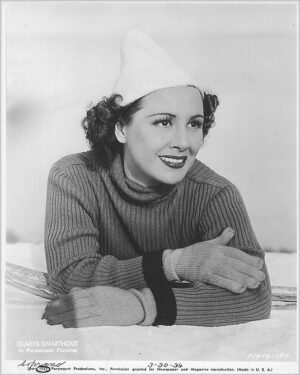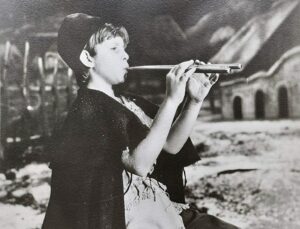Irving Kolodin in The Saturday Review of Literature:
Lily Pons’ enduring fame was not seriously marred by her most recent Metropolitan appearance in a “gala” paying tribute to her appearances there in twenty-five successive years since her debut in 1931. She looked indescribably well, she sang with an indescribable effect on a large audience, and they responded with applause of warmth and volume. Leopold Stokowski was present, also Gladys Swarthout, Lillian Gish, David Oistrakh, and Andre Kostelanetz. The second act of “Rigoletto,” the “Mad Scene” from “Lucia,” and a group of arias were interspersed with tokens of esteem from management, directors, and co-workers.
The whole point of the occasion-how long Miss Pons has lasted in her chosen field and how well she still does what made her famous-was dulled a little by two facts. She has, truly, lasted longer than most other coloraturas (the pedants will note that Marcella Sembrich sang in the Met’s first season, 1883, and didn’t retire until 1909) but in the ten postwar years she has appeared at the Met only thirty-four times, an average of three-plus a year. Thus, her operatic endeavor has been spread very thin for a very long time. In some of these seasons she sang no more than once, meaning that her “streak”-like some famous ones in the sporting world–has been kept alive as much by courtesy as by achievement.
As to the second point, Miss Pons has been famous a long time, and has been singing near, rather, than on, the pitch much of that time. That typical characteristic was not denied the audience at her “gala,” which heard a Gilda in typical Pons style-not too sparkling in sound, but with every note animated by a keen sense of audience effect.
As a vocal phenomenon Miss Pons possessed a sounder technique than most of her contemporaries, also a compact chic which she had the good sense to make a stock in trade. For preserving all of these as well as she has, she is entitled to profound admiration, if more as a kind of perennial public personality than as an operatic artist. Jan Peerce (the Duke) and Robert Merrill (Rigoletto) both sang uncommonly well in the Verdi, for which Fausto Cleva was the conductor.



